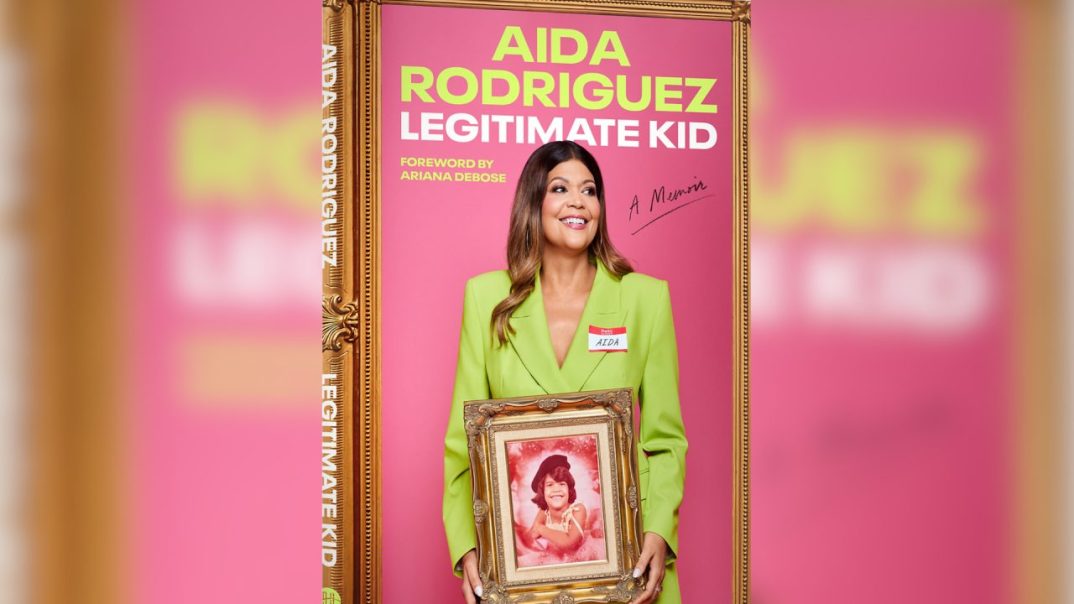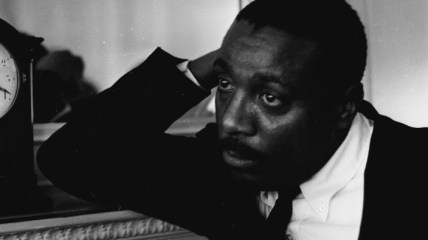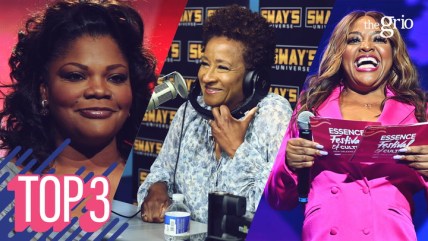Aida Rodriguez paints powerful lessons from childhood trauma in memoir ‘Legitimate Kid’
TheGrio's Natasha S. Alford chats with comedian Aida Rodriguez about her new memoir.

For comedian Aida Rodriguez, the search for legitimacy started early in life. After a classroom bully told her she was a “bastard” because she didn’t have her father’s last name, young Aida started to question where she belonged. That search and the ways she worked around the traumas of poverty, family separation, and sexism, comprise the pages of the acclaimed funny woman’s new book, Legitimate Kid.
Rodriguez diligently climbed the ranks of the comedy world, overcoming a period of homelessness and struggle, to land an HBO special called “Fighting Words” in 2021. In that special and other comedy shows, Rodriguez bravely tackled similar themes around family, in addition to boldly calling out the racism and colorism she witnessed growing up as a woman of Puerto Rican and Dominican descent.
In a recent interview with theGrio, Rodriguez talks about some of the themes in Legitimate Kid, and how the journey from a girl questioning herself to a woman raising her own children, has made her more sure of the power of her own voice than ever before.
Natasha S. Alford: Can you talk about the struggle to feel like a legitimate kid, and what were some of the stigmas that you were fighting against in your childhood?
Aida Rodriguez: The answer to that question has evolved quite a bit since, you know, the third grade, when another kid in my class called me a bastard to flex on me because she had her father’s last name and the at least I have my father’s last name was what we were battling with while we were both poor in the hood, people of color and struggling. I think that searching for legitimacy, specifically as a person of color. And in this country who is, you know, a descendant of, you know, indigenous and African people where we don’t have our names, you know, something that’s been weaponized against us.
Just to keep it real, I felt, you know, awful being called the bastard and not having my daddy’s last name and hearing your daddy didn’t sign your birth certificate. And, you know, being poor and already going through what I was going through, it really affected and impacted the way I felt about myself and how I moved in the world. You know how I was searching for that father figure, looking for that legitimacy, if you will, and how problematic that became for me. And, you know, all of that is rooted in foolishness. And I just think that it’s important to talk about it, because there are a lot of people out there who didn’t grow up with their fathers. They are doing great things, accomplishing lots in life, and should not be considered less than because they don’t have their father’s, you know, last name or because they don’t have a father in the home.
Natasha S. Alford: I’m so glad that you said that, because it is a message that a lot of us need to hear, but particularly if you are a working class kid, you know you’re growing up in whatever neighborhood or city or even in a in a rural place where you feel like people are trying to say that you you don’t fit into what is the expected mold. I love how you talk about your uncles and the way that they fulfilled that role, right. And as well as other people in your family. You show the beauty of the non-normative kind of, you know, two kids and a dog, type of portrayal of what family is. Can you talk about the ways in which you found other modes of support because you did become successful, and you do you do embody the American dream now. So how did you overcome what you felt was missing in your life?
Aida Rodriguez: Well, you know, the reality of it is, is that we are a village people. And when I say that, you know, that started with everybody, you know, pre colonization, but people from Africa, indigenous people, we are a village people. And that was the first thing. You know, one of the first things that they tried to take from us. I won’t say the first thing so that the you know, purists in the comments section don’t go into the dissertations about what was the first thing that was taken from us. It is part of who we are. And that African proverb, it is the village that raises the children. You talk to me about people of color, Black people in this country, and they’re going to tell you about their aunties and Madea and abuela and grandmother and all the nicknames that we have, and the aunts and uncles that stepped in.
I wanted to make sure that I stood up and say, I am what I am, because these people showed up for me, and they may not be ideal in the eyes of what you and them thinks, but the reality of it is that they were essential to me being everything that I can be in life. And I’m very passionate about that. My uncles were, you know, Black men, essentially Black men, and we call them, you know, we have all kinds of names for them in Latin America to not say Black, but they were Black men that showed up for me in the best way. They were my protectors. They were my providers. They were my nurturers. They saw me to the light and I will always uplift and uphold them.
Natasha S. Alford: Absolutely. Aida, when I hear you talk, there is a consciousness that comes through. And it’s something that is often debated in Puerto Rican communities, but Latino communities in general, right? What does it mean to be racially conscious to understand how racism and colorism work? How did you come to that awareness? You talk about your ancestors, Black grandmother. I mean, you know, your roots and you’re proud of your blackness. How did you come into that journey?
Aida Rodriguez: You know. How could I not? When every single person that showed up for me in my life was a Black person first, and then they happened to be Puerto Rican and Dominican. I saw the discrimination against my grandmother, a woman asking her if a watermelon was ripe in a grocery store. You know, she came here during the civil rights movement. She was hosed. She was called the N-word.My uncle’s– the same thing. Like, how could I not? You know. Just to sit here in my life can privilege knowing that some things are better for me because I’m lighter and I have a certain texture of hair and being and sitting there and just basking in it without being able to say, these people, they broke their backs for me and for me to ignore them or not use this position that I have to make life better for them is a disservice to them.
Never miss a beat: Get our daily stories straight to your inbox with theGrio’s newsletter.


